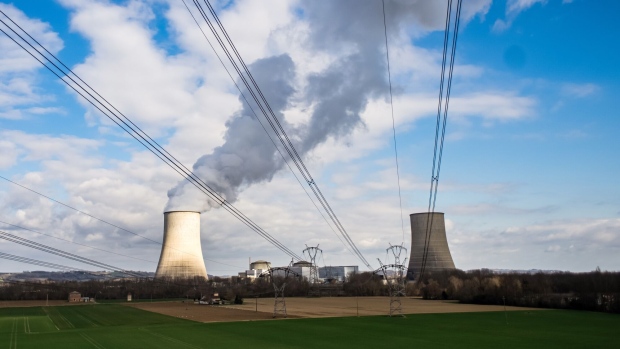
The company, which already raised €50 million from a handful of French family offices such as Eren Groupe SA and €10 million from the government, is reaching out to venture capital, industrial and institutional investors, and sovereign wealth funds for a Series A funding round with the help of Rothschild & Co., co-founder Jean-Luc Alexandre said in an interview in Paris Friday. He hopes to close the fundraising in the first quarter next year.
Naarea, which stands for Nuclear Abundant Affordable Resourceful Energy for All, is part of a growing wave of companies from Europe to North America promoting smaller, cheaper and safer designs for reactors. The burgeoning sector of small modular and advanced nuclear reactors — which have a wide array of sizes and technologies — suffered a setback this month when NuScale Power Corp. canceled a plan to build a plant in the US amid mounting costs.
“NuScale isn’t dead, and still has projects,” the Naarea CEO said, while pointing out that the French startup, which employs 175 people, has a different business model and is developing another technology. Naarea aims “to produce power and heat, as close as possible to industrial companies, to relieve the grid.”
The startup, which is working with the French nuclear industry and foreign laboratories, is seeking to build a reactor that would produce 40 megawatts of electricity — enough to power a car factory or some of the biggest desalination plants — as well as heat, according to Alexandre.
Naarea is working on so-called molten salt fast neutron reactors that would be the size of a bus. It would burn plutonium and highly toxic radioactive waste that’s currently stored in France. It has found a ceramic that would prevent corrosion from the liquid fuel, something that has hampered the development of such reactors in the past, the company’s boss said.
If all goes according to plan, there would be a full-scale prototype in 2028. By 2030, a total of €2 billion would be required to complete the reactor development, build a fuel plant at or near Orano SA’s nuclear-waste recycling facility in La Hague, and a separate reactor factory elsewhere in France. The startup also needs to convince nuclear safety and regulatory authorities about the project.
These reactors “are competitive because they are small,” and safe by design, Alexandre said.